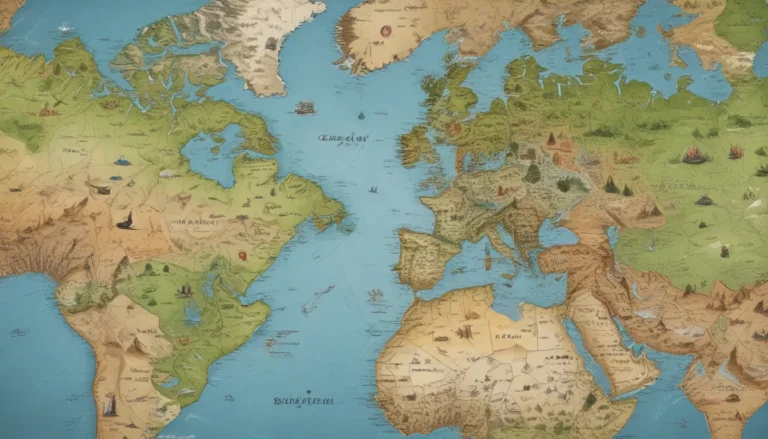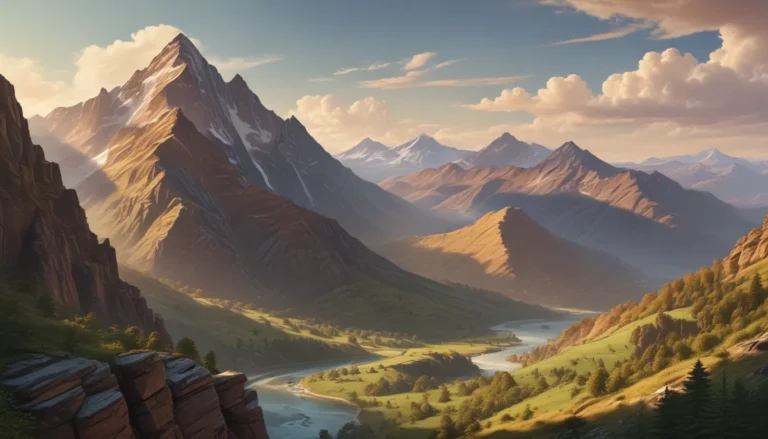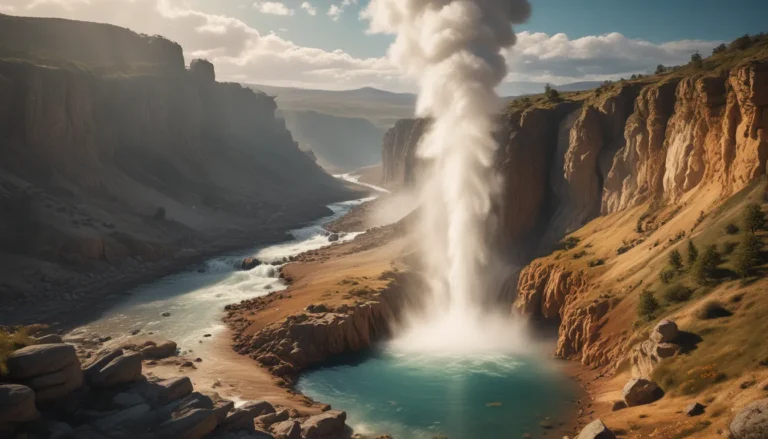A Note About Images: The images used in our articles are for illustration purposes only and may not exactly match the content. They are meant to engage readers, but the text should be relied upon for accurate information.
Welcome to the captivating realm of deltas, where nature’s wonders unfold in vibrant ecosystems that shape our planet’s landscapes. Deltas are not just geographical features; they are dynamic havens for diverse wildlife, intertwined with cultural traditions and inspiring art and literature. Join us on a journey through 21 fun and intriguing facts that illuminate the unique characteristics and significance of deltas worldwide.
Unveiling the World of Deltas
Deltas are born at the convergence of rivers and the vast expanses of oceans or seas, where sediment carried by rivers is deposited, gradually forming these picturesque landforms. The term “delta” originates from the Greek letter “Δ,” reflecting the triangular or fan-shaped appearance of these unique landscapes.
The Lifeblood of Biodiversity
Deltas are vital ecosystems, providing habitats for a diverse array of flora and fauna. The intricate network of waterways and marshes within deltas sustains numerous species, making them essential for biodiversity. The largest delta in the world, the Ganges-Brahmaputra Delta, spanning across Bangladesh and West Bengal, serves as a lifeline for millions and showcases the vital role deltas play in supporting life.
Guardians of the Coastline
Beyond their ecological importance, deltas act as superheroes, protecting coastlines from erosion and serving as resilient buffers against the forces of nature. These dynamic landscapes are continuously evolving, demonstrating the incredible power of natural processes in shaping our world.
Cultural Treasures and Traditions
From the historical significance of the Nile Delta in Egypt to the vibrant floating markets of the Mekong Delta in Vietnam, deltas are steeped in cultural heritage. Communities residing in and around deltas have developed unique traditions and livelihoods closely tied to the natural resources provided by these regions.
Threats and Challenges
Despite their resilience, deltas face threats from human activities and the impacts of climate change. Factors such as dam construction, deforestation, and urbanization can disrupt the delicate balance of these ecosystems, leading to erosion and alterations in their landscape. Rising sea levels pose a significant risk, potentially submerging vast areas of land and affecting communities dependent on these regions.
A Glimpse Into Scientific Research
Scientists and researchers worldwide are studying deltas to gain insights into sediment dynamics, ecological processes, and the effects of human interventions. By understanding these complex ecosystems, we can work towards sustainable approaches to preserve and protect these invaluable landscapes for future generations.
Embracing Delta Dynamics
Deltas are emblematic of the intricate relationship between land and water, showcasing the continuous interplay between natural forces and human activities. From the Amazon River Delta’s impressive discharge volume to the captivating beauty of deltas inspiring artistic and literary works, these landscapes continue to captivate and inspire individuals worldwide.
Conclusion: Preserving Nature’s Masterpieces
In conclusion, deltas are not only geological marvels but also vital ecosystems that shape our planet’s landscapes and support diverse wildlife. Understanding the dynamic nature of deltas is a testament to the Earth’s ever-changing geography and the delicate balance between natural forces and human impact. As we unravel the mysteries of these unique environments, let us embrace the responsibility to preserve and protect deltas for future generations to cherish and enjoy.
FAQs
-
What causes the formation of deltas?
Deltas form at the mouths of rivers where sediment carried by the river is deposited, creating the characteristic triangular or fan-shaped landforms. -
Why are deltas important ecosystems?
Deltas support a rich diversity of species, serve as natural buffers against coastal erosion, and play a crucial role in maintaining ecological balance and biodiversity.
We are committed to delivering trustworthy and engaging content, contributed by real users like you, to ensure the highest standards of accuracy and reliability. Trust in our dedication to quality and authenticity as you explore the fascinating world of deltas with us.






